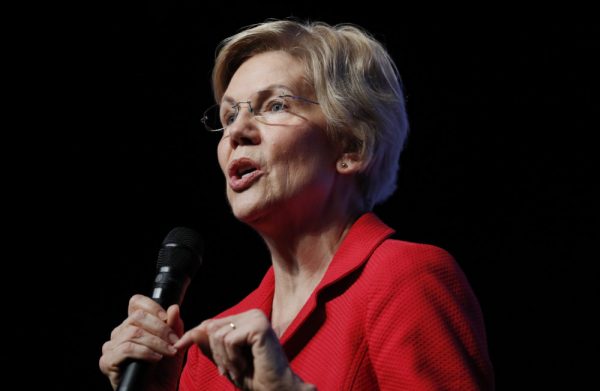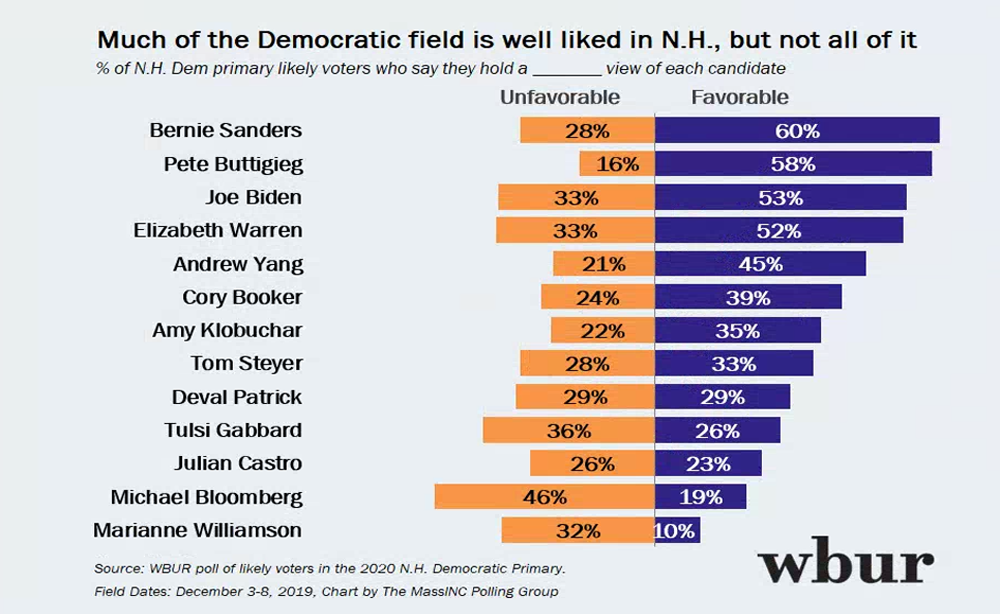From Green Technology To Fossil Fuels, Elizabeth Warren Talks Climate At New Hampshire Town Hall – WBUR
Support the news

As wildfires burn across much of Australia, and presidential candidates descend on New Hampshire in the last weeks before the first-in-the-nation primary, Massachusetts Sen. Elizabeth Warren is turning to an environmental platform as she tries to regain ground with voters.
“I think we all know that the 2020 election is not just about the next four years, is not just about the next eight years. The 2020 election may well be about the survival of our planet,” Warren said Friday night at a town hall in Milford, N.H.
“What scares me the most is that every time the scientists go back and collect some more data and put it into their models, two things happen: They tell us the problem is worse than we thought, and that we have less time than we thought. … This is literally our last chance to save this planet,” she said.
Following a dip in fundraising during the last quarter of 2019, and a number of recent polls placing her in third or fourth place, Warren is campaigning hard on the issues she believes matter most to voters.
Over the course of an hour, Warren answered questions from the audience about energy, transportation and the environment.
One voter asked Warren what she would do first as president to combat climate change.
“I’m going to start by doing everything a president can do all by herself. So here’s one, right off the top: No new drilling or mining on federal lands or offshore,” Warren said, adding that she’d also appoint an Environmental Protection Agency head “who is actually going to be aggressive on climate issues and ready to wade into the fight.”
In response to another question about military pollution, Warren said she was committed to greening the military and to bringing troops home from Afghanistan and the Middle East.
“Going green, being able to be more energy independent … actually makes our troops safer,” she said. “And as our military goes green, they provide a ready market for everyone who is producing for the military. And that will help stimulate more green production.”
Warren also talked about decarbonizing the electricity, transportation and building sectors — assuring voters in the audience that she does, indeed, have a plan for that. She also addressed climate refugees, PFAS in drinking water and the Paris Climate Accord, but ended the night on a topic she said was central to her climate plan: environmental justice.
“For generations now, our country has sited the polluters near communities of color,” she began. “And we have finally done the work to understand this has a profound effect on the health of children who live nearby, on the health of seniors — particularly those who are vulnerable … and it has a profound economic effect.”
Environmental justice, Warren said, “will not simply be a glue-on at the end. I will commit a trillion dollars to cleaning up the areas that we as a country have polluted and need to stand behind now.”

For Ruth Morrissette of Nashua, Warren’s environmental message — and her detailed plans — resonated.
“I just feel like she’s very knowledgeable and on point, and I’m encouraged by her message,” Morrissette said. “When she was talking about PFAS in the water, and the quality of the water, that’s a hot issue in southern New Hampshire right now. It’s something that I’ve read about, that I’m concerned about. So I’m glad that she knows about that.”
New Hampshire voter Tracy Gomes has been watching the news about bushfires in Australia recently, and says she’s started to think more about how environmental policy will affect her vote next month.
“It’s easy to push it back when there’s so many other things in your life every day. But this is horrendous, and it brought it up more to the forefront for me,” she said.
Nationally, the majority of Democrats say climate change is important to them, though as a priority in the 2020 election, it often falls below health care. A WBUR survey of the Boston region, which includes parts of southern New Hampshire, found similar positions among Democratic voters.
Judy Kowalik of Brookline, N.H., is one such voter.
“As a mother and grandmother, I’m really very concerned about this planet we live on, but health care is number one for me,” she said. “I’d say [the environment] is number two or three.”
Kowalik added that while she likes what she’s heard from Warren generally, her priority is finding a candidate who can beat President Trump in November.
Kowalik said that when it comes to the environment, health care, or any other issue, “any democrat would be a great improvement exponentially over what we have now.”






